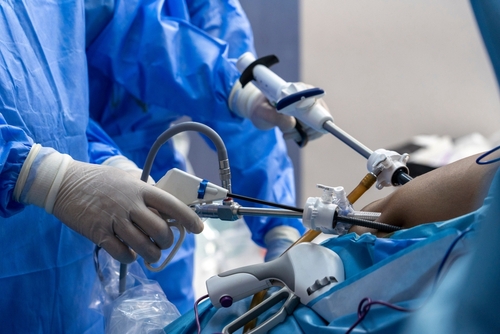A hysterectomy is a common surgical procedure where a woman’s uterus is removed. It can be performed for various medical reasons, such as uterine fibroids, cancer, or severe pelvic pain. Over time, laparoscopic hysterectomy has become a preferred method due to its minimally invasive nature. Unlike traditional open surgery, laparoscopic procedures require only small incisions, which leads to a shorter hospital stay and a quicker recovery time.
However, this less invasive technique also comes with its own set of risks, primarily because the surgeon has a limited view of the internal organs. One of the most common and serious complications of laparoscopic hysterectomy is damage to the ureters, which can lead to painful and long-term medical issues.
At Shapiro, Washburn & Sharp, our experienced medical malpractice attorneys have successfully handled cases where surgical errors led to severe harm. If you or a loved one has suffered from a surgical error, it’s crucial to seek legal advice as soon as possible. Our experienced lawyers represent clients on a contingency-fee basis, meaning you won’t pay any legal fees unless we win your case. Contact us today for a free consultation at 833-997-1774 to learn more about your legal options and how we can help you pursue the compensation you deserve.
What Are Ureter Injuries in Laparoscopic Hysterectomy?
The ureters are tubes that carry urine from the kidneys to the bladder, and they are located near the uterus. During a laparoscopic hysterectomy, the surgeon uses specialized instruments to perform the procedure with minimal incisions. While this technique has many benefits, it also limits the surgeon’s ability to fully visualize the surgical area. This can lead to accidental injuries, particularly to the ureters, which can be difficult to see through the laparoscopic instruments. Damage to one or both of the ureters can occur if they are inadvertently cut, clipped, or cauterized during the surgery.
Injury to the ureter can result in a number of serious health problems, including the leakage of urine into the abdominal cavity, kidney damage, and infection. If not promptly identified and treated, ureter injuries can cause the patient to become very ill, requiring additional surgeries and extended hospital stays to repair the damage. In severe cases, permanent kidney damage or dysfunction may occur.
How Do Surgeons Identify and Avoid Ureter Damage During Laparoscopic Hysterectomy?
One of the biggest challenges in laparoscopic hysterectomy is the limited visibility the surgeon has of the internal organs. Unlike traditional surgery, where a large incision provides direct access to the surgical site, laparoscopic surgery relies on small incisions and a camera to view the area. Because the surgeon cannot directly see all the structures in the abdominal cavity, it becomes more difficult to identify critical organs like the ureters, which are located near the uterus.
To mitigate the risk of ureter damage, surgeons rely on various techniques and tools, such as advanced imaging technologies, careful dissection, and surgical planning. Surgeons are trained to carefully locate and preserve the ureters before proceeding with the removal of the uterus. In some cases, a ureteral stent may be placed to make the ureters more visible during surgery, helping the surgeon avoid cutting or injuring them. Despite these precautions, however, the risk of injury remains, particularly if the surgeon is inexperienced or if there are anatomical variations in the patient’s body that make visualization more difficult.
What Are the Consequences of Ureter Injuries During Laparoscopic Hysterectomy?
Injuries to the ureter during a laparoscopic hysterectomy can have serious and long-lasting consequences. The most immediate consequence is the leakage of urine into the abdominal cavity, which can cause peritonitis, an infection of the abdominal lining. This is a potentially life-threatening condition that requires prompt medical intervention. Additionally, if the ureter is completely severed, it can result in a loss of kidney function on the affected side, which may require the placement of a stent or nephrostomy tube to divert urine while the ureter heals.
Most patients who suffer from ureter injuries will need additional surgeries to repair the damage. These surgeries can be invasive, painful, and require a long recovery period. In some cases, the patient may experience chronic pain, recurrent infections, or long-term kidney issues. The emotional and physical toll of dealing with these complications can significantly impact the patient’s quality of life, making it crucial for both surgeons and patients to be aware of the risks involved in laparoscopic hysterectomy.
What Can Be Done to Prevent Ureter Injuries in Laparoscopic Hysterectomy?
While some degree of risk is inherent in any surgical procedure, steps can be taken to minimize the likelihood of ureter injuries during laparoscopic hysterectomy. First and foremost, it is essential that patients choose a highly skilled and experienced surgeon who is proficient in performing laparoscopic hysterectomies. Surgeons should be well-versed in the anatomy of the pelvic region and use advanced imaging techniques to better visualize the organs during surgery.
Additionally, some hospitals and surgical centers may use tools like intraoperative fluoroscopy, which can provide real-time X-ray imaging of the abdominal cavity, or intra-abdominal ultrasound to help identify the ureters more easily. Surgeons can also use ureteral stents or other devices to protect the ureters during surgery. Preoperative planning, including a thorough understanding of the patient’s anatomy and any previous surgeries, can also help identify potential risks and reduce the likelihood of complications.
Contact Our Medical Malpractice Law Firm for a Free Consultation
If you believe that a doctor or surgeon’s mistake has caused you harm, it is critical to act quickly. Surgical errors can lead to severe complications, including sepsis, and holding negligent healthcare providers accountable is essential. At Shapiro, Washburn & Sharp, our medical malpractice attorneys represent victims of surgical errors and medical negligence. We offer free, confidential consultations and represent clients on a contingency-fee basis—meaning you won’t pay any legal fees unless we recover compensation for you.
Contact our office today at 833-997-1774 to schedule your free consultation with a doctor malpractice lawyer, and let us help you understand your legal options.
